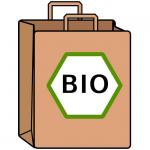
Ukraine is reviewing draft law that, if adopted, would restrict circulation of plastic bags.
If adopted, the law would set out the legal and organizational principles of plastic bags circulation and regulate the relations that arise during the distribution of plastic bags in Ukraine. This law would prohibit the distribution in retail trade and restaurant facilities of the following bags: a) ultralight plastic bags; b) light plastic bags; and c) oxo-decomposable (oxobiodegradable) plastic bags.
A “biodegradable plastic bag” is defined as a plastic bag that decomposes with the participation of microorganisms into elements of natural origin and meets the criteria established by the national standard DSTU EN 13432: 2015 (EN 13432: 2000, IDT) "Packaging. Requirements for packaging disposed of by composting and biodegradation. Test schemes and evaluation criteria for final acceptance of the package”.
“Light plastic bags” are defined as plastic bags with a wall thickness of 15 to 50 micrometers.
“Oxo-decomposable (oxobiodegradable) plastic bags” are plastic bags, the composition of which is polyethylene and oxo-decomposable impurities.
A “plastic bag” is a container made of plastic in the form of a sleeve, with a bottom and an open neck, with handles or without handles, which is intended mainly for packaging and (or) transportation of goods and products by end consumers.
The law would prohibit the distribution in retail and restaurant facilities of the following plastic bags:
a) ultralight plastic bags;
b) light plastic bags;
c) oxo-decomposable (oxobiodegradable) plastic bags.
“Distribution” is the issue of plastic bags to the users/consumers either for a fee or free of charge at the points of retail sales or restaurants.
This prohibition would not apply to biodegradable plastic bags.
The prohibition also does not extend to ultralight plastic bags up to 225 mm wide (without lateral folds), depth to 345 mm (taking into account lateral folds), length to 450 mm (taking into account handles) intended for packaging and (or) transportation of fresh fish and meat and meat products, as well as bulk products, ice, which are distributed in retail outlets as primary packaging.
Whether a plastic bag can be considered “biodegradable” is to be determined in accordance with the national standards DSTU EN 13432: 2015 (EN 13432: 2000, IDT) "Packaging. Requirements for packaging disposed of by composting and biodegradation. Test schemes and evaluation criteria for final acceptance of the package. " and DSTU EN 14995: 2018 (EN 14995: 2006, IDT) “Plastics. Assessment of biochemical degradation ability. Test procedure and technical conditions."
Plastic bags that meet the criteria for the definition of biodegradable plastic bags established by the national standard DSTU EN 13432: 2015 shall be marked as biodegradable. The marking must be placed on each individual plastic bag.





